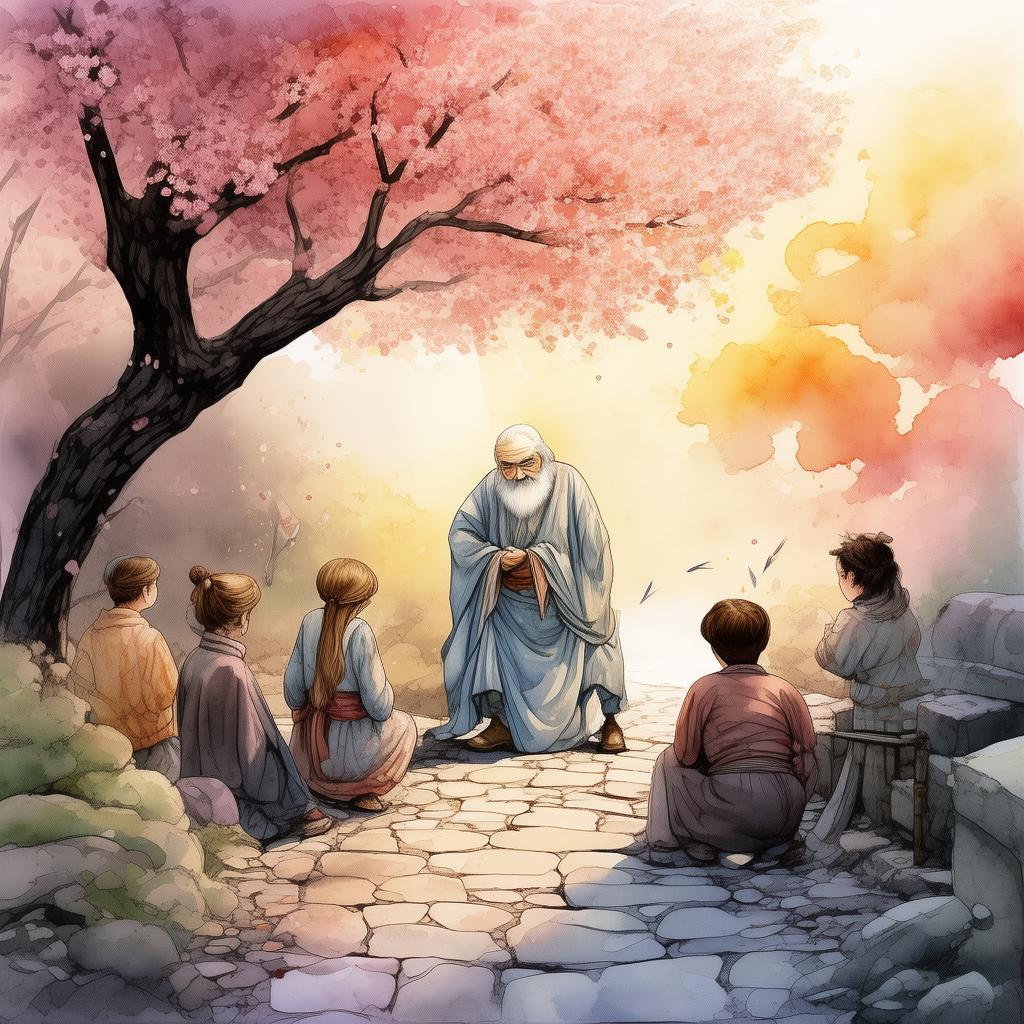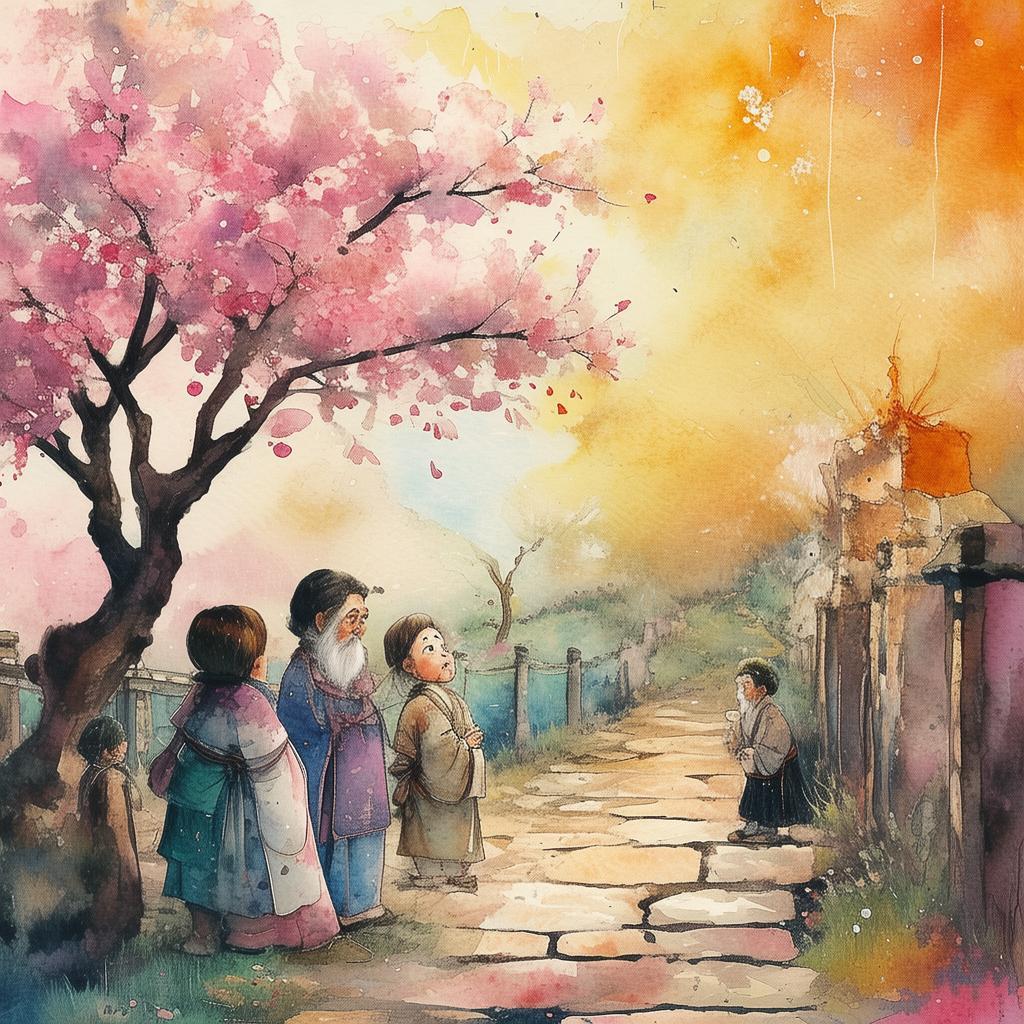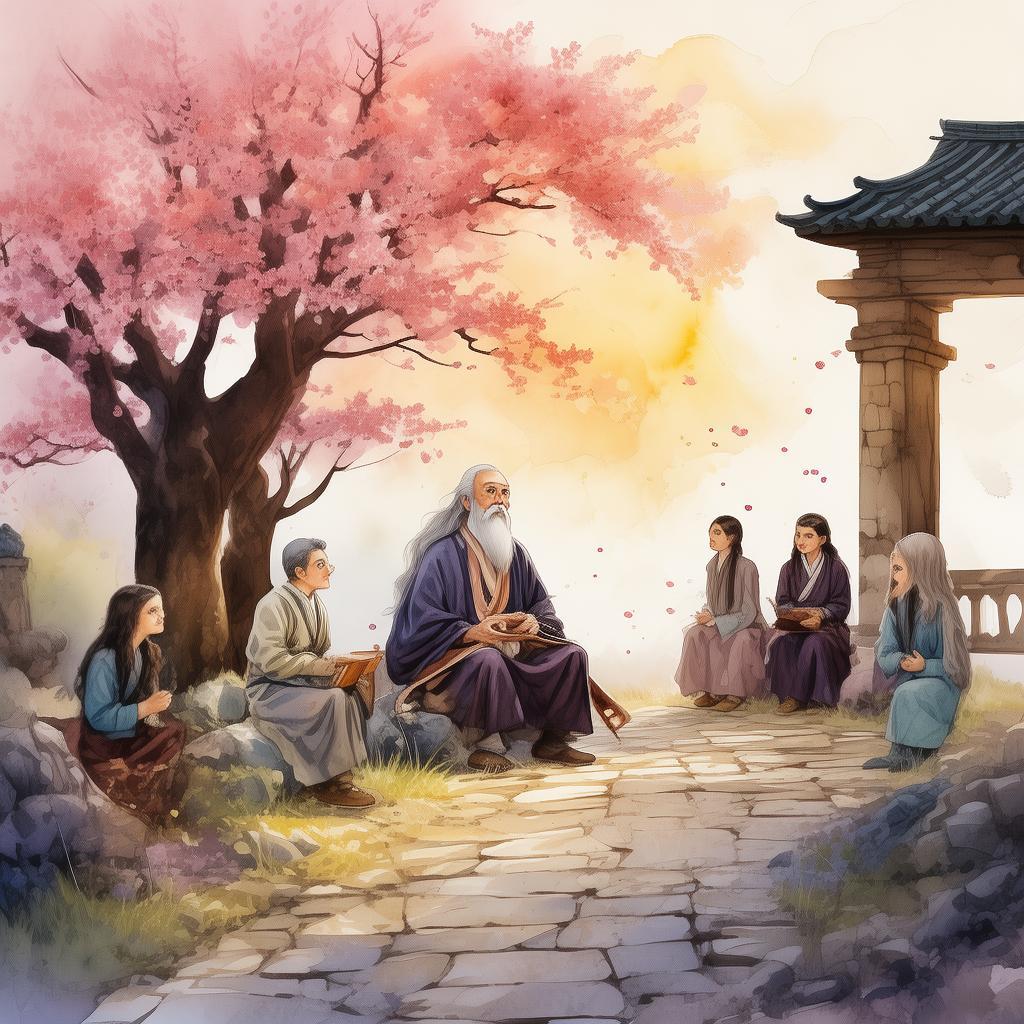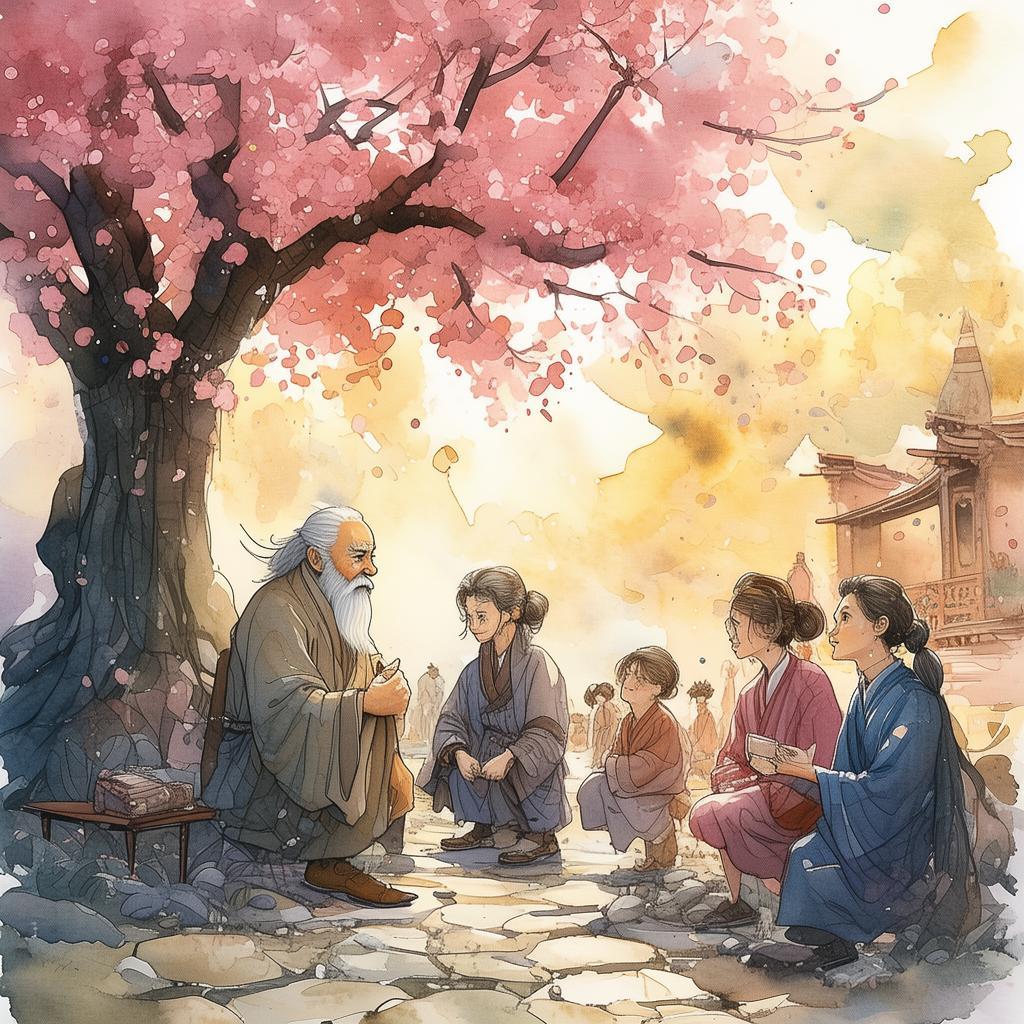The Zen Master's War: A Battle of Mind and Strategy
In the ancient land of Zen, there was a renowned warrior monk named Master Hu. Known for his serene demeanor and profound understanding of the Zen philosophy, Master Hu was often sought after for his wisdom. Despite his peaceful nature, he was also a master of war, having served in many battles and won them all with his unparalleled strategy.
One day, the kingdom of Zen was threatened by a fierce warlord named Lord Kuan. Known for his cunning and ruthless tactics, Lord Kuan sought to conquer the peaceful land and impose his rule upon the people. The king, in despair, turned to Master Hu, seeking his counsel on how to protect his kingdom.

Master Hu listened intently to the king's plea, then responded with a calm demeanor. "Your Majesty, the war is not to be fought with swords and arrows, but with the mind. We must outwit Lord Kuan with our wisdom, not with our might."
The king, though skeptical, agreed to Master Hu's plan. Together, they set out to devise a strategy that would turn the tide of the war without resorting to violence.
Master Hu began by gathering the greatest minds of the kingdom, including scholars, artists, and even the common folk. He asked them to share their thoughts and ideas on how to outwit Lord Kuan. The scholars spoke of ancient texts and philosophies, while the artists painted vivid images of the land and its people. The common folk shared their stories of life under Lord Kuan's rule, revealing the suffering and despair that his reign had brought upon them.
From these diverse perspectives, Master Hu crafted a plan. He ordered the construction of a series of intricate labyrinths throughout the kingdom. These labyrinths were designed to confuse and disorient the enemy, preventing them from advancing further into the heart of the land.
As Lord Kuan's forces approached the borders, Master Hu instructed his warriors to stand their ground and allow the enemy to enter the labyrinths. Lord Kuan, intrigued by the mysterious defenses, ordered his soldiers to explore the labyrinths. Little did he know, these labyrinths were designed to reflect the Zen philosophy of self-discovery and inner peace.
As the soldiers wandered through the labyrinths, they became increasingly frustrated and angry. They shouted and cursed, trying to find their way out, but the labyrinths were designed to make them confront their own inner turmoil. Many soldiers broke down, sobbing and begging for mercy, as they realized the true nature of their leader and the cause they were fighting for.
Meanwhile, Master Hu and his warriors remained calm and patient, observing the chaos from a distance. They allowed the enemy to become more and more confused and frustrated, until at last, they were completely defeated.
Upon witnessing the victory, the king and his people were overjoyed. They praised Master Hu for his brilliant strategy and the wisdom that had protected their kingdom. Master Hu, however, remained humble and focused on the true victory: the peace that had been restored to the land.
Lord Kuan, realizing the error of his ways, offered his surrender. He was granted mercy and allowed to live out his days in peace, reflecting on the lessons he had learned from the Zen master.
The Zen Master's War became a legendary tale, reminding all that true strength lies not in the might of one's weapons, but in the strength of one's mind. It taught the people of Zen that the key to victory was not in fighting, but in understanding and compassion.
In the end, Master Hu's strategy was not only a triumph of war but also a testament to the power of Zen philosophy, proving that even amidst the chaos of war, one could find inner peace and the path to victory.
✨ Original Statement ✨
All articles published on this website (including but not limited to text, images, videos, and other content) are original or authorized for reposting and are protected by relevant laws. Without the explicit written permission of this website, no individual or organization may copy, modify, repost, or use the content for commercial purposes.
If you need to quote or cooperate, please contact this site for authorization. We reserve the right to pursue legal responsibility for any unauthorized use.
Hereby declared.









